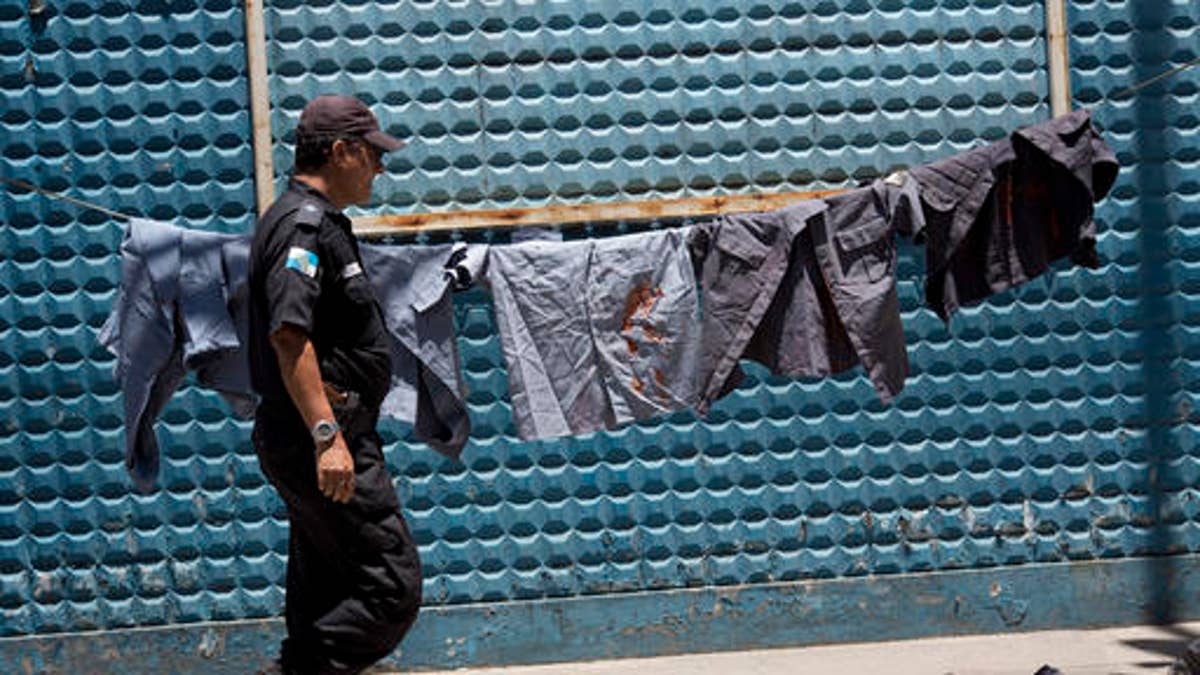
A police officer walks next to uniforms painted with red ink to symbolize blood during a protest in Rio, Brazil, Feb 10, 2017. (AP)
Authorities in the Brazilian state of Espirito Santo threatened striking police officers with criminal charges on Friday as the federal government sent in more troops in a bid to end a week of violent anarchy that has left more than 120 people dead.
Espirito Santo is one of several Brazilian states grappling with a budget crisis that is crippling essential public services for millions
of citizens. The police strike over the past week, over pay, has left a security vacuum and led to rampant assaults, heists and looting, often in broad daylight.
Limited protests by police in nearby Rio de Janeiro alarmed
many residents of the teeming city of 12 million people, many of whom live in fear of violence between rival drug gangs spilling out of hillside slums.
BRAZILIAN GOVERNOR WANTS MORE ARMY TROOPS TO QUELL VIOLENCE
A spokesman for the local police union in Espirito Santo said the death toll from a week of unrest had risen to 122. Many of the dead are believed to come from rival criminal gangs, according to police.
State officials have not officially confirmed the number of dead.
If accurate, the toll would be more than six times the homicide rate in the state last year.
President Michel Temer's government said late on Thursday that hundreds more soldiers and federal police would be sent in to help stem the chaos, focused mostly in the metropolitan region of Vitoria, the state capital.
After an initial deployment of 1,200 troops in recent days, as many as 3,000 would be there by the weekend, the defense ministry said.
State officials said on Friday that more than 700 striking state officers, who in Brazil are organized with military-style ranks and
rules, would be charged with rebellion.
MORE THAN 50 INMATES KILLED IN BRAZIL PRISON RIOT
Wives and family members who have blockaded police stations could also face fines and other penalties, they said.
"We will not be weak," said Andre Garcia, the secretary. "We will ensure that the rule of law is preserved."
Local officials have closed schools, clinics and public transportation, while shops and other businesses have closed their shutters, causing about $30 million in losses, according to a state retail association.
Meanwhile, in Rio, where the state government has bee struggling to pay salaries, family members of some officers early on Friday blocked the entrance to a handful of local police stations in an effort to keep squad members from patrolling.
The tactic, which on a much larger scale has paralyzed Espirito Santo, affected just a few districts. By Friday afternoon, no major problems had been reported.
